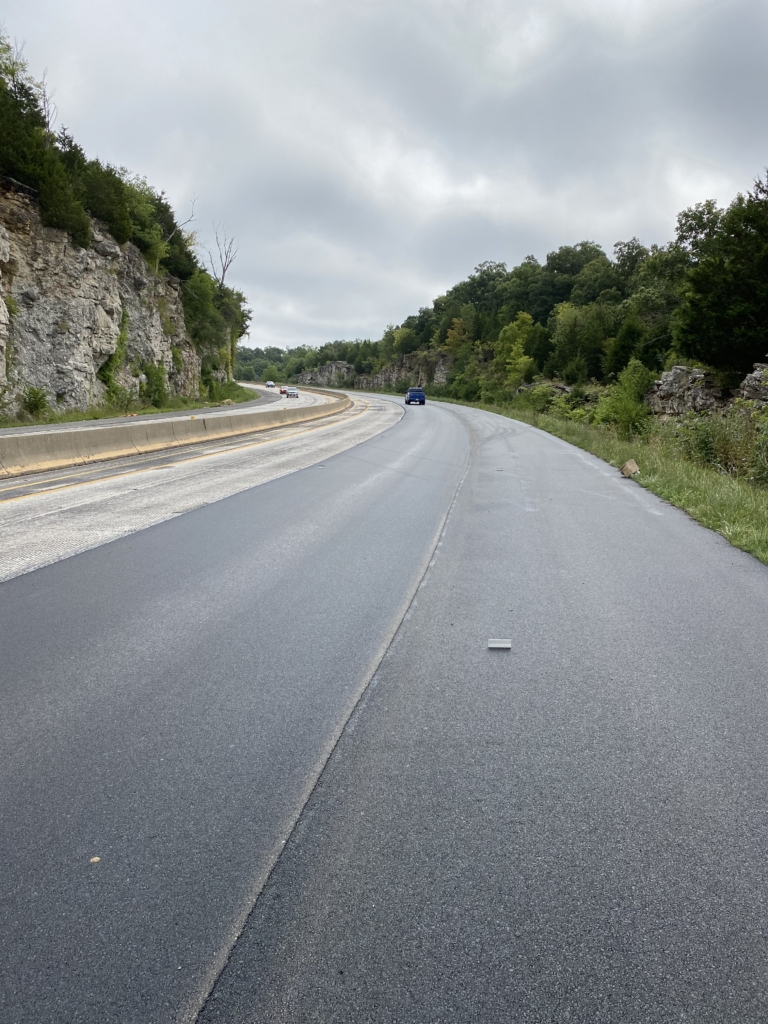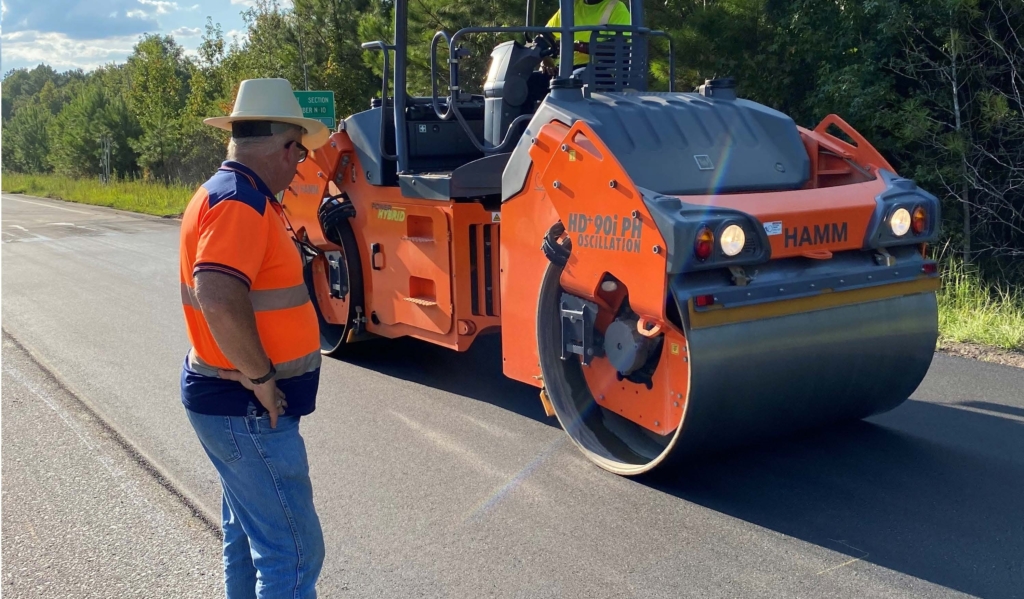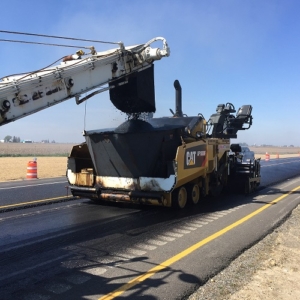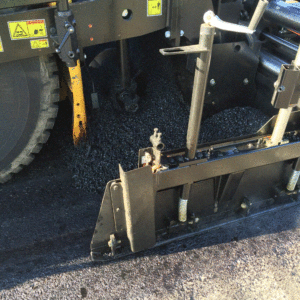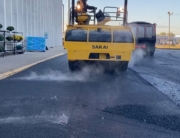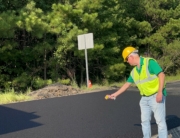In 2022, officials from the Missouri Department of Transportation allowed the replacement of their standard SMA mix design for interstate highway roads with a mix modified with Engineered Crumb Rubber (ECR). This rubberized mix used ElastikoR ECR as a mix modifier. When the substitution was allowed, the road agency replaced an SMA mix utilizing Poly-Phosphoric Acid (PPA) as a binder stiffener along with fibers. The replacement mix used ECR and no fibers. With the new rubberized mix design, two questions were raised: will the rubber hold the liquid asphalt binder throughout the mix, or will the mix allow the asphalt binder to drain down to the bottom of the pavement, permitting “flushing“ or “bleeding” of the excess binder to the pavement surface, causing slippery, unsafe pavement conditions for cars and trucks?
Several interstate highway miles of each pavement were laid on the eastbound passing lane of I-70 in central MO during the hottest time of the year. A few hours after placement, both pavements were opened to heavy truck traffic and heat. After three weeks of service, both pavements were evaluated for visible signs of bleeding and rutting. No fat spots, bleeding or rutting was observed in either pavement. Following that evaluation, both pavements were subjected to a traction evaluation. A skid trailer was used to measure the skid resistance of the pavement (see images sent to you). This computer-controlled system wets the pavement and then measures the traction of the tires while braking. After 144 measurements of skid resistance on the pavements, MODOT researchers found that the ECR pavement showed approximately 14% better traction than the PPA/fiber pavement. These tests indicate that vehicles will stop more effectively on ECR pavements during wet pavement conditions. In addition to being safer than standard PPA/fiber pavements, ECR pavements are lower cost and very durable.
• ECR reduces the cost of a twograde bump: by $2-$4 per mix ton
• ECR makes your plant run faster compared to polymer modified mixes: lower mix viscosities permit 10-15% faster plant throughput
• ECR generates less waste for interstate highway projects: mixes leave the truck with almost no residue in the bed, reducing truck cleanout waste
• ECR can extend your paving season: ECR mixes can allow paving and compaction in colder temperatures
• ECR allows more efficient compaction: ECR mixes typically require 10-20% fewer roller passes to achieve compliant compaction
• ECR pavements work well in thinlay applications: Compared to standard unmodified hot mix asphalt, ECR pavements can achieve greater durability with thinner lifts.

